Heroika (Dragon Eaters Heroika Volume 1) Epic Historical Fantasy Adventure Anthology Edited by Janet Morris ➱ Book Tour with Guest Post & Giveaway
The art of dragon killing.
Seventeen writers bring you so close to dragons you can smell their fetid breath.
Heroika: Dragon Eaters
Heroika Volume 1
Edited by Janet Morris
Genre: Epic Historical Fantasy Adventure Anthology
Janet Morris and Chris Morris, The First Dragon Eater
S.E. Lindberg, Legacy of the Great Dragon
Janet Morris and Chris Morris, Bring Your Rage
Walter Rhein, Aquila of Oyos
Cas Peace, The Wyght Wyrm
Jack William Finley, The Old Man on a Mountain
A.L. Butcher, Of Blood and Scales
Travis Ludvigson, Night Stalkers
Tom Barczak, Forged
JP Wilder, Rhyme of the Dragon Queen
Joe Bonadonna, The Dragon’s Horde
Milton Davis, Wawindaji Joka (The Dragon Hunters)
M Harold Page, Sky Tomb of the Earth Kings
William Hiles, Red Rain
Beth W. Patterson, La Bétaille
Bruce Durham, Arctic Rage
Mark Finn, Sic Semper Draconis
**Heroika: Dragon Eaters is Perseid Press' featured series for July and is on sale for Only $2.99 on Kindle!!**
anthology on the art of dragon
killing, seventeen writers bring you so close to dragons you can smell their
fetid breath. Tale for the bold among you. Joe Bonadonna is one of the
authors who contributed to Heroika: Dragon Eaters. Here are Joe’s
responses to various questions.
What is something unique/quirky about you?
I don’t think there’s really anything unique about me,
although my teenage years and early adulthood were more like an old
Warner-Brothers gangster flick than most authors I know. Lots of violence and
nasty encounters with the police, which was normal in the neighborhood where I
grew up, and for those times. Quirky? Well, I’ve always liked monster flicks,
going back to my kindergarten years, and I read comics and books and collected
monster trading cards, which made me a “weirdo,” according to a lot of the guys
and gals with whom I grew up. Then, when I started playing guitar, I was
considered “cool,” and I spent 20 years playing in rock bands, until I retired
to concentrate full-time on writing. I did have a great childhood, though.
However, high school was one of the most miserable times of my life. Being an
only child, I naturally spent a lot of time alone, playing with toy soldiers,
drawing, watching movies, building monster models, and reading comic books.
Later I set aside the toys, comic books and model-building and replaced those
with reading novels and playing guitar.
Can you, for those who don't
know you already, tell something about yourself and how you became an author?
Well, the place where my Dad
worked shared a “floor” with a book bindery. They did not do the book covers,
just the binding. So my Dad was always bringing home books for me to read when
I was a kid. He and my Mom taught me how to read and always championed my
writing. One day, when I was in 4th or 5th grade, I decided I wanted to tell
stories. So I sat down and started writing cheesy sci-fi stories and monster
theatrical plays. My Catholic grade school nuns, who were always very
supportive and encouraging, didn’t think my little plays were appropriate for
kids to perform for the “PTA.” So that never happened. I also wanted to be like
Mickey Rooney in all those films he made with Judy Garland: “Hey, kids! My
folks have a garage. Let’s put on a play.” But that never happened, either.
Sports and girls were the only thing my friends were interested in. Rock and
roll, films, reading, writing, and girls, of course, are what interested me.
Who is your hero and why?
My Dad and my Mom, both heroes in their own right. Two of the
kindest, most loving, honest, and supportive people I’ve ever known. My friends
would agree to that. Our house was the party house, where my bands rehearsed
and my friends came to dance.
Which of your novels can you imagine being made into a
movie?
All of them, really. But my three Mad Shadows books,
featuring Dorgo the Dowser as a sort of a Philip Marlowe or Sam Spade type of
gumshoe in an alternate 15th century; he uses a special dowsing rod
as an investigative and forensic tool. These books would make a decent TV
series, if done right. If I could pick the cast, the director, the producer,
and have final say in the scripts. Not too many film-makers really understand
the Heroic Fantasy and Sword & Sorcery genres, in my humble opinion. Peter
Jackson gets it. So does Guillermo del Toro. Those two guys I would love to
work with. Many of the people behind the Game of Thrones series, too.
Since working with people like that is highly unlikely, there’s no amount of
money that could make me “sell out,” so to speak, to the Hollywood
Establishment. I’m too old now to care about money; not that hungry and driven
anymore. Even now my energy is starting to wane, ideas and enthusiasm is
slipping away, and my ability to focus and concentrate are ready to retire. My
legacy is all that’s important to me, now. Hopefully I can finish a fourth and
final Mad Shadows volume before my time on this planet comes to an end.
Aging totally sucks, and ill health makes me feel much older than my 71 years.
As the French would say, C’est la vie.
What inspired you to write The Dragon’s Horde for
Heroika?
First of all, Dragon Eaters, the book’s “subtitle,” was very
much the key to what I wanted to write. The Dragon’s Horde takes place
in the world of my Mad Shadows series, but centuries before the birth of
Dorgo the Dowser, that series’ main character. Heroika: Dragon Eaters,
promised to be a very different and unique volume of Heroic Fantasy, for it
would (and does) contain so many great stories written in other genres and set
in many different eras and worlds. It’s a truly diverse set of stories about
killing and eating dragons which, for this book, have been restored to their
former stature as monsters; you won’t find any loveable dragons here. Now,
while planning my story, I started thinking of vampires, werewolves and zombies,
who become “creatures of the night” through a virus or bacterial infection, I
wanted to use that angle. Since we were writing about dragons and I knew most
of the stories in the book would feature dragons and dragon-slaying, I wanted
to approach my story from a different avenue. There would be no dragons in my
story, only their “horde,” their half-human offspring. These hybrids were
spawned centuries ago by dragon venom, which gave them the ability to infect
other humans with a bite or a scratch, which is enough to make them turn into Homo
Reptilia or Homo Drakōn — dragonmen, whom I call the Draakonim or
Draaks: these are the dragon’s horde of the title. For 500 years no dragons
have been seen, but the warriors of Klibberhelm Keep, descendants of the original
Dragon Eaters, have been guarding Klibber Pass against incursions by the
Draakonim in a never-ending battle to keep the Draaks from invading the lands
of men.
Convince us why you feel your story is a must read.
Although The Dragon’s Horde is a character-driven
story, it opens with a battle scene and has plenty of swordplay and
bloodletting throughout. It has a sense of humor, as well, which comes from the
characters themselves, the warriors, in how they speak and interact with one
another. There are a few surprises along the way: a warrior-priestess named Shadumé arrives at the Keep
on a mission from her goddess; she is accompanied by two wolverines that are
not what they appear to be. There’s a connection between her and Vadreo, the
main male character, going back many years earlier, when they first met and
became lovers. There are a number of twists, turns, surprises and revelations
sprinkled throughout the story, as Shadumé brings with her lost knowledge, dire
warnings and some answers for the descendants of the Dragon Eaters. Shadumé reveals to the warriors of
Klibberhelm Keep that the egg of a Queen Dragon has been laid and is ready to
hatch: the first dragon’s egg in five centuries. Her mission is to destroy the
egg or the dragon herself while it’s still a hatchling, before the Queen and
the Draaks can begin to breed. Of course, there’s another creature involved — a
Spiderworm who is one more key to this story. Shadumé then chooses one warrior to accompany her and
her wolverines through the desert, to find the lair of the Spiderworm, and she
chooses the man from her past . . . Vadreo, the leader and Warhand of Thoon
Wolf, which is his clan and his tribe. What we learn about Vadreo, Shadumé and her two wolverines is
at the heart of this story.
What is your advice to new authors?
Study and get to know the genre in which you plan to write.
Read other genres, as well: romance, horror, sci-fi, biographies, history . . .
you can learn something from every genre. Don’t limit yourself by boxing yourself
in. Sure, you may have read Edgar Rice Burroughs, J.R.R. Tolkien, George R.R.
Martin, Robert E. Howard and H. P. Lovecraft, and other well known authors of
the fantasy and horror genres. But it doesn’t hurt to read Hemingway,
Steinbeck, Faulkner, Jack London, Dashiell Hammett, Raymond Chandler, and
other, more mainstream authors like Isabel Allende,
Amy Tan, Silvia Moreno-Garcia, and others. Read the classics of the 18th
and 19th centuries, too. You can learn something from every writer,
if you study how and why they did things a certain way. Most of all, interact
with other writers. Study and know the markets you wish to write for, but also
write what you want, the way you want, and then be open to suggestions by
editors and publishers. Be flexible. Know not only the art and craft of
writing, but the mechanics of it, too: proper formatting is the mark of a
professional, although in this day and age there is no one standard anymore.
Some publishers will want a different font style and size, certain types of
scene and chapter breaks, etc. And just keep writing, whether it’s 400 words a
day or 4000 words a day. Just keep writing and never stop learning. Never stop
experimenting with different styles or playing with words. Use humor to make
your characters more 3-dimensional, and keep your dialog crisp and not stilted:
remember, dialog is action, and a lot of info can be told through
dialog, through the characters, rather than through narration. Let your
characters tell the story. Characters are the heart and soul of literature, and
dialog that moves the story along and reveals the “inner-workings” of
characters is, in my opinion, a must: without dialog, we’d have no stage plays.
Without dialog, we’d still be watching silent films. Without dialog, there’d be
no history of great radio drama and TV shows. Without characters and dialog all
you’re left with is narration and description. But that’s okay, too, if that’s
the way you want to tell your stories. Most of all . . . Show, don’t tell
— and that’s a balancing act because narration and description can slow down a
story just as much as it can propel a story forward, if handled correctly. And
as Alfred Hitchcock once said, and I paraphrase here: “If you put a gun on the
mantlepiece in Act I, that gun better be used by Act III.” But as I said, this
is just my opinion. Writing is a lonely profession and many of us have to make
our way alone through the tangled undergrowth and all the pitfalls. Just sit
down and write.
Best selling author Janet Morris began writing in 1976 and has since published more than 30 novels, many co-authored with her husband Chris Morris or others. She has contributed short fiction to the shared universe fantasy series Thieves World, in which she created the Sacred Band of Stepsons, a mythical unit of ancient fighters modeled on the Sacred Band of Thebes. She created, orchestrated, and edited the Bangsian fantasy series Heroes in Hell, writing stories for the series as well as co-writing the related novel, The Little Helliad, with Chris Morris. She wrote the bestselling Silistra Quartet in the 1970s, including High Couch of Silistra, The Golden Sword, Wind from the Abyss, and The Carnelian Throne. This quartet had more than four million copies in Bantam print alone, and was translated into German, French, Italian, Russian and other languages. In the 1980s, Baen Books released a second edition of this landmark series. The third edition is the Author's Cut edition, newly revised by the author for Perseid Press. Most of her fiction work has been in the fantasy and science fiction genres, although she has also written historical and other novels. Morris has written, contributed to, or edited several book-length works of non-fiction, as well as papers and articles on nonlethal weapons, developmental military technology and other defense and national security topics.
Janet says: 'People often ask what book to read first. I recommend "I, the Sun" if you like ancient history; "The Sacred Band," a novel, if you like heroic fantasy; "Lawyers in Hell" if you like historical fantasy set in hell; "Outpassage" if you like hard science fiction; "High Couch of Silistra" if you like far-future dystopian or philosophical novels. I am most enthusiastic about the definitive Perseid Press Author's Cut editions, which I revised and expanded.'
Website * Facebook * Twitter * Instagram * Bookbub * Amazon * Goodreads
Follow the tour HERE for special content and a giveaway!


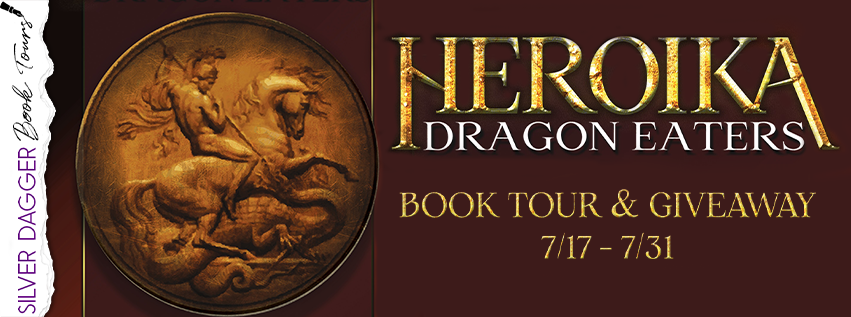
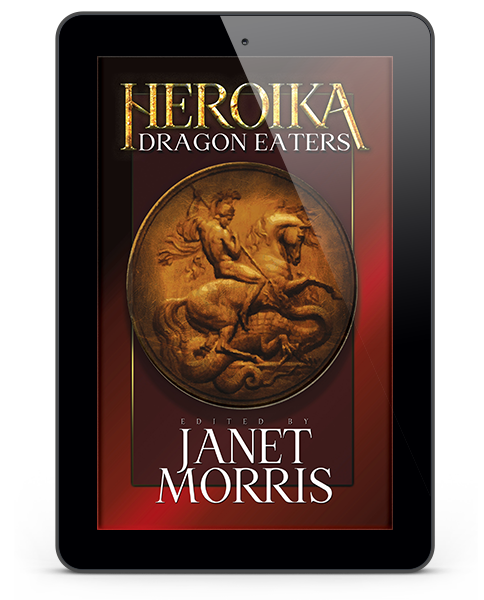

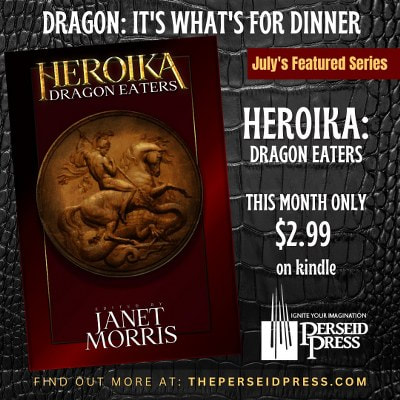
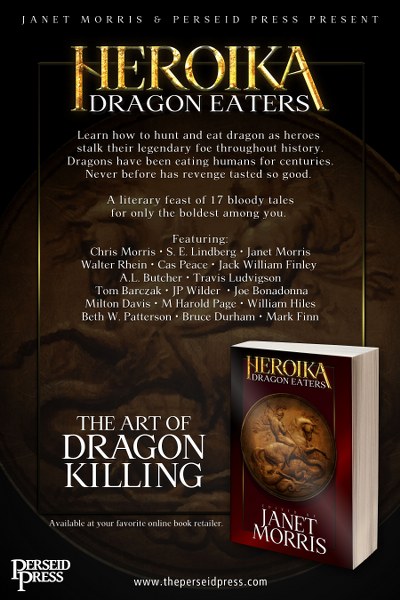







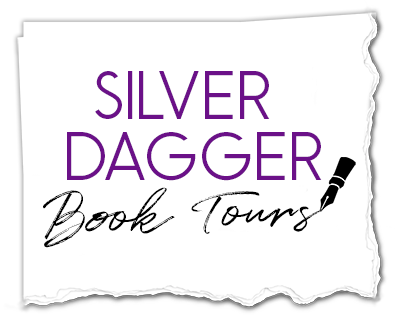
Thank you for sharing the author's guest post, bio and the book details, I have enjoyed reading this post and I am looking forward to reading all of these epic stories
ReplyDeleteThanks for the interview. This looks great!
ReplyDeleteI enjoyed the excerpt and post. Sounds like a really interesting story.
ReplyDelete